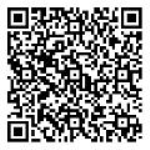How Do Children Find Patterns in Reiteration? Procedural Knowledge and Conceptual Knowledge in Identifying Repeating Patterns
Author: Chao-Jung Wu(Department of Educational Psychology and Counseling, National Taiwan Normal University),Chien-Hui Hsu(Department of Psychology and Counseling, National Taipei University of Education)
Vol.&No.:Vol. 55, No. 1
Date:March 2010
Pages:1-25
DOI:10.3966/2073753X2010035501001
Abstract:
Children who explore repeating patterns are able to grasp the regularity in the world and develop algebraic thinking. The authors studied five- to eight-year-old children to investigate how procedural knowledge and conceptual knowledge are used in identifying repeating patterns. Procedural knowledge comprises setting boundaries, encoding, comparing, and loop of reiteration or revision, and conceptual knowledge includes the principles of restricted and equal-length, among others. The procedural and conceptual knowledge of repeating patterns could be interpreted by a “procept”. The eight-year-old children could integrate the procedural and conceptual knowledge to find the patterns, but they had accessibility deficiency and adopted the heuristics only occasionally. The five- and six-year-old children showed evidence of two principles, but some could not integrate the procedural knowledge. Results were applied to the Working Memory Model (Baddeley, 2001) and the ACT* Model (Anderson, 1983).
Keywords:repeating pattern, heuristic, procedural knowledge, conceptual knowledge
 《Full Text》
《Full Text》
